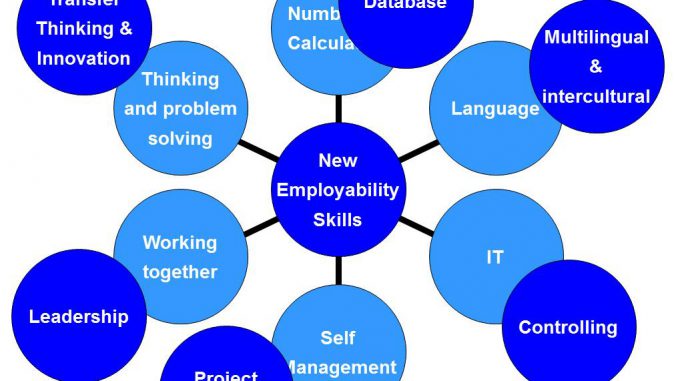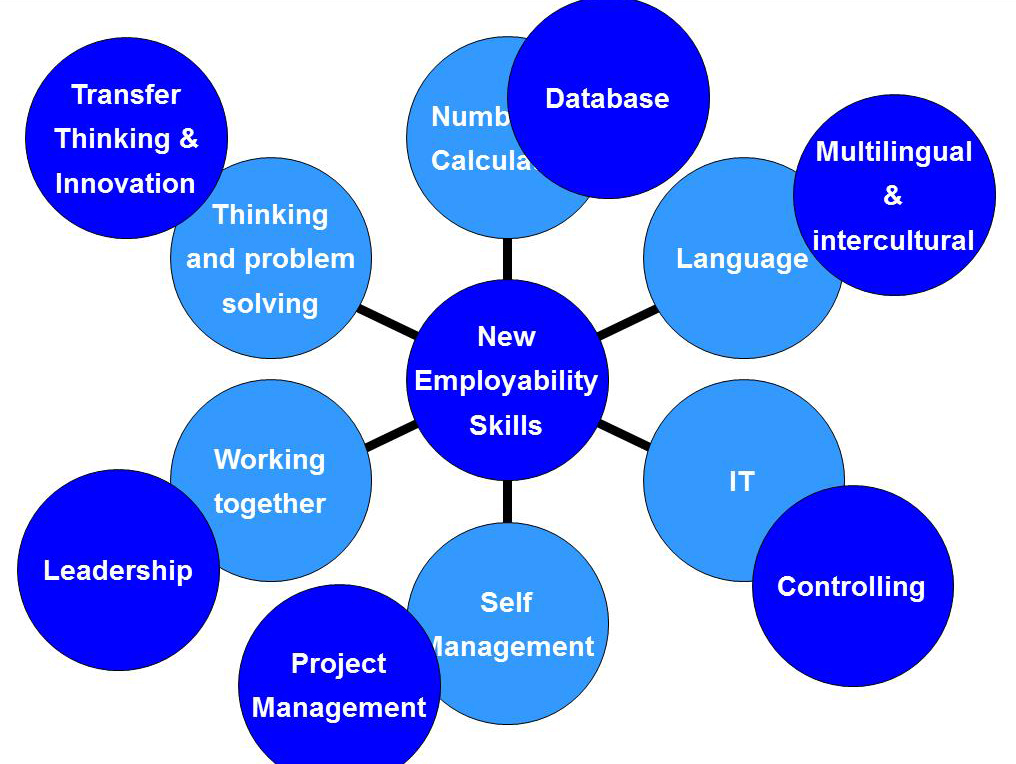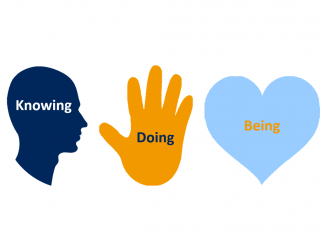
If you have laid the wrong foundations, you cannot build the house of your dreams. This is precisely what worries so many students and school graduates who want to study. They are haunted by three nagging questions: Which subject should I choose? To what extent do I have to specialize? What else must I consider?
Employability
Employability – that’s the new buzzword on the job market. It refers to the ability to successfully prepare for one’s career – and then to master the transition to the working world. In the 20th century, this used to be a rather simple process: The training you underwent or the subject you graduated in sort of “prepared” you for the job. Today, graduates have to accept being blamed for lacking basic knowledge (like correct spelling or the simplest math), for inadequate (i.e. vague and inappropriate) communication skills, deficient practical skills; and insufficiently developed capacities for transferal thinking and change of perspective.
Regrettably, personality tests and “academic advisors”, relieving the fears of desperate parents and students for large amounts of money, are rarely the solution. Many of them do not even take the time for a systemic analysis; and the so-called experts have no clue about the education market’s countless opportunities or of the current demands of the job market.
Thus, the question arises: What do I really need? In this respect, the typical answers of Generation X in Germany were quite simplistic: With several million jobless in the nineties, you had to be able to distinguish yourself and make an impression! Certainly performance – it was believed – was the best indicator. Mainstream thinking has it that this is best expressed in grades. If you had very good grades, you could get your dream job.
Unfortunately, however, performance in the areas of specific tangible skills does not add up to employability. There are other skills that determine if you will be successful in your job or in launching a company.
Error No. 1: Specialization at the very start of the training
If, for example, you chose a subject that sounds good and is positioned a bit in a niche, then this might limit your career extremely (let’s disregard the careers of a professional footballer or a concert pianist for a moment here). But should a student interested in selling cars or a student who wants to become a controller actually take up a BA program in Marketing & Sales or Controlling? It does represent a challenge to the intellectual and comprehension capacities of every student who acquires a bachelor’s degree in a more general field and then specializes subsequently.
Both students should be advised to take up general business studies – with the specialization to follow when they start to work for a specific company. Even a Master’s degree does not guarantee employability, it merely improves prospects.
Error No. 2: Human resources issues will be processed by the Human Resources Department
If a student does not learn about human resource management and fails to develop an idea about strategic or operational staff development, he will hardly be able to lead his own staff in the long run. Ten years ago, staff-related tasks were exclusively in the competence of the Human Resource Management.
Today, the manager, the executive is expected to build virtual teams or to implement new management concepts. Whereas in the past, marketing or financing skills were decisive, staff-related qualifications will become increasingly important in the future. Hence, every aspiring manager should be able to master human resource management skills.
Error No. 3: Basic subjects ranging up to retirement
Even highly trained professionals will have to continue acquiring skills and knowledge. This is referred to as Lifelong Learning (Triple L). Not only must employers adapt to the demands of Generation Y, modern leaders also must continuously adapt to the new demands of the work environment, for example Industry 4.0.
The diagram below depicts the new skills that enhance employability.

The new skills
Trusting relationships with one another will become increasingly important in view of a globalized working environment – and it can only be attained by excellent communication skills and accumulated experience. In a virtual world, the personal network and a person’s reliability will be the crucial success factors. They are the prerequisite for all other professional and social skills and, consequently, for successful employability.




